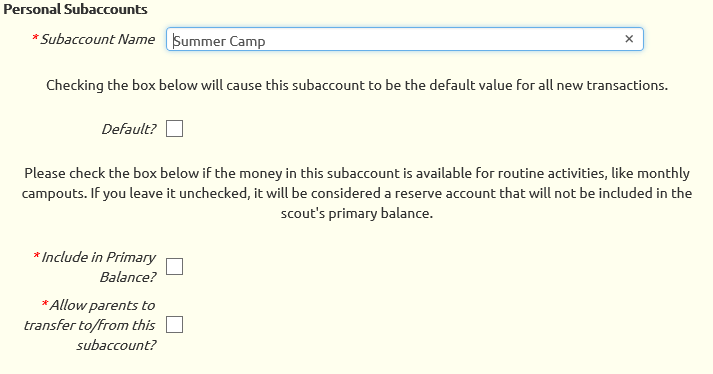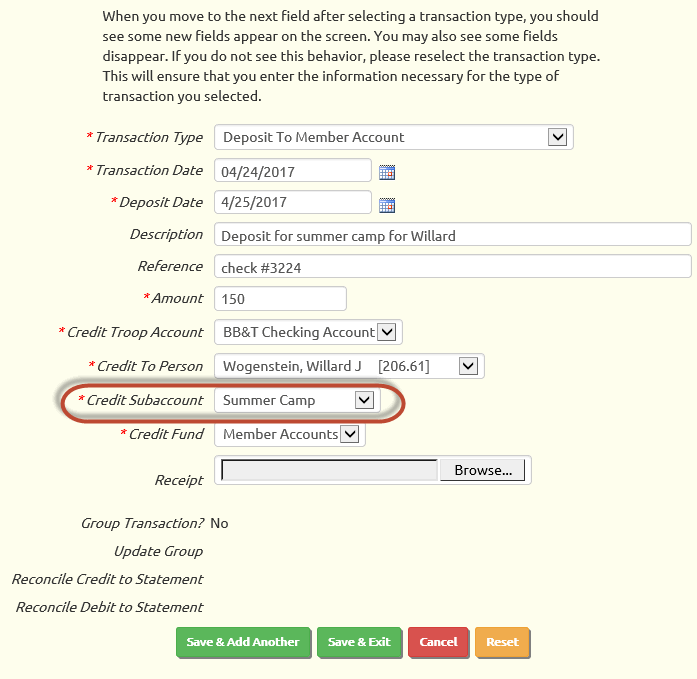Summer camp and special outings like Philmont can be very expensive. Many troops try to collect money in advance for the scouts who are planning to attend these events.
Installment Charges
One approach is to charge the attendees in installments in the months leading up to the event, e.g. charge $100 in January, another $100 in February, etc.
You can charge the first installment automatically by configuring the event to charge participants when they sign up. After that, each installment can be charged by manually creating a group transaction. This can be done from the calendar detail page for that event by clicking the Add Group Transaction To Charge Participants button. This will create a group transaction with all of the participants pre-selected.
With this approach, you might want to set the sign-up deadline for the event to the date on which you plan to charge the second installment. That will lock in the sign-up list so you won't have to make adjustments later on.
Reserve Accounts
Another approach is to create a personal subaccount to set aside payments that are intended for summer camp. This creates a "reserve account" for each member of your troop, where they can accumulate money for this specific purpose.
This is what this personal subaccount would look like, when you add it from Site Configuration → Money → Personal Subaccounts.

Do not create personal subaccounts for a specific event. I.e., do not create a "Summer Camp 2024" personal subaccount. Instead, use a generic name, like "Summer Camp" or "High Adventure", so the same subaccount can be used year after year. This feature will be easier to use if you keep the total number of subaccounts to just a handful.
In the above example, please note that the Include in Primary Balance option is not selected. This means that deposits to this subaccount will not be reflected in the scout's primary balance, which can be displayed on the event participant list for most events. You should never check this box when creating a reserve account.
Once this personal subaccount has been defined, you can reference it when you deposit money into a member account. This can be considered a reserve account for this individual.
This is what a deposit to this personal subaccount would look like:

When you charge your scouts for summer camp, the group transaction should reference this same personal subaccount. This will reduce the balance of this reserve account for all of the scouts who attended summer camp.